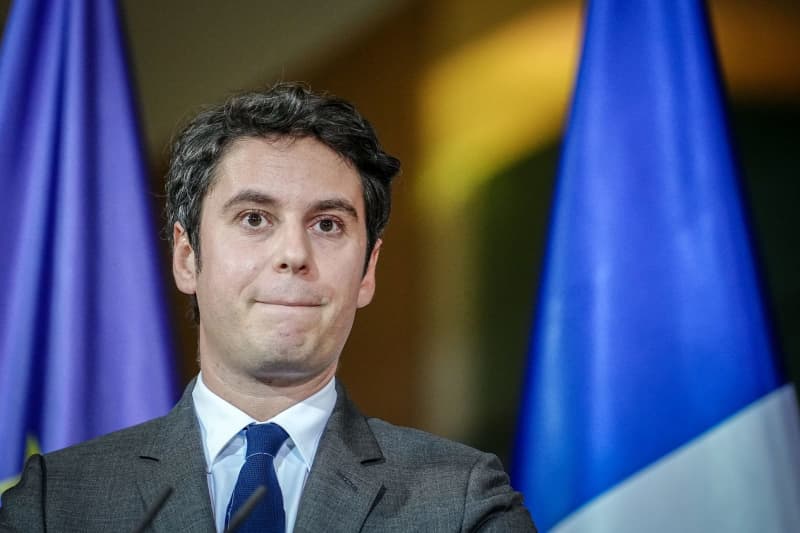French President Emmanuel Macron refuses to accept the resignation of Prime Minister Gabriel Attal after the surprise result of France’s early parliamentary elections, the Élysée Palace announced on Monday.
Macron has asked Attal to remain prime minister for the time being to ensure the country’s stability, the report said. Attal announced his resignation on Sunday evening after the preliminary results were announced.
The new left-wing French alliance, the New Popular Front (NFP), wants to quickly reach an agreement on a candidate to succeed Attal after its unexpected victory.
The NFP bloc consists of the Socialists, the Greens, the Communists and Jean-Luc MélenchonThe far left of France is unscathed.
Official results released by the Interior Ministry showed that Macron’s centrist Ensemble bloc (Together) came in second.
Marine Le-PenThe far-right nationalist party National Rassemblement (RN), initially seen as the favorite after the first round of voting, finished third.
Neither side secured an outright majority, making it difficult to form a government and risking a deadlock in the European Union’s second-largest economy.
Macron announced the early polls on June 9. The NFP was launched shortly before the first round of National Assembly elections on June 30. The short time to prepare meant that the alliance did not enter the elections with a leading candidate.
“We should be able to nominate a candidate within a week” for the post of prime minister, Faure told broadcaster France Info.
He said a decision must be made quickly to show the public that the alliance is ready to govern. Faure said the candidate could be chosen by consensus among party officials or by party votes.
Mathilde Panot, chair of the France Unbowed faction, told broadcaster RTL that the NFP will present a prime minister and a government this week. She believes that veteran far-left Mélenchon, the controversial founder of France Unbowed, is still in the running.
In an interview with France Inter, Green Party leader Marine Tondelier called for a consensus decision, adding that it is much more important to agree on policy than on the person who will become prime minister.
Lawmakers have until July 18 to form their parliamentary groups.
Efforts to form a government will focus on exploring possible alliances and convincing individual MPs from other groups.
How things will continue is still unclear. It is uncertain whether the left can form a minority government independently.
However, given the opposing political orientations, it remains questionable whether coalition agreements will be successful.
If no bloc can find a majority to form a government, the current government can do business on an interim basis, or an expert government can be appointed.
In such a scenario, France would face a political impasse. Another dissolution of parliament by Macron and new elections would not be possible until July 2025.

